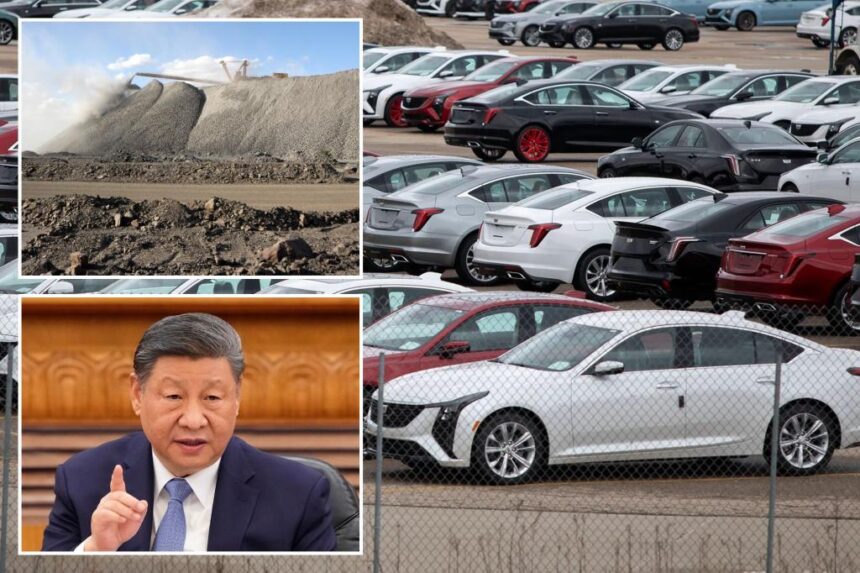China has recently granted temporary export licenses to rare-earth suppliers of the top three US automakers, according to sources familiar with the matter. This move comes as supply chain disruptions are beginning to surface due to Beijing’s export curbs on these materials. The licenses, some of which are valid for six months, have been issued to alleviate the supply bottleneck caused by China’s restrictions on rare earth exports.
It is unclear what quantity or items are covered by the approval, and whether this signals a potential easing of the rare-earth licensing process in the future. This development follows a phone call between President Trump and Chinese President Xi Jinping, where they discussed trade differences. Trump mentioned in a social media post that there should no longer be any questions regarding the complexity of rare earth products, indicating a potential step towards resolving trade issues.
China’s decision in April to restrict exports of rare earths and related magnets has disrupted supply chains for automakers, aerospace manufacturers, semiconductor companies, and military contractors worldwide. With China producing around 90% of the world’s rare earths, industries dependent on these materials are facing increasing threats to production. The dominance of China in the critical mineral industry has become a key point of leverage in the ongoing trade war with the US.
Suppliers of the top three US automakers, General Motors, Ford, and Stellantis (formerly Fiat Chrysler), have received clearance for rare earth export licenses. While GM and Ford declined to comment, Stellantis stated that they are working with suppliers to ensure an efficient licensing process and have been able to address immediate production concerns without major disruptions so far. The Ministry of Commerce in China did not respond immediately to requests for comment on the export licenses.
The export controls on critical minerals by China have drawn criticism from Trump, who accuses Beijing of violating the truce reached last month to roll back tariffs and trade restrictions. US auto companies have already felt the impact of these restrictions, with Ford shutting down production of its Explorer SUV at its Chicago plant for a week in May due to a rare-earth shortage. The recent approvals for auto suppliers follow similar permissions granted to a US electronics firm and a non-auto company earlier this week.
In an effort to improve control over the rare earth magnet sector, China has introduced a tracking system to crack down on smuggling and enhance regulation in the industry. The development of this tracking system indicates China’s commitment to addressing concerns about the weaponization of rare earth materials. As the situation continues to evolve, industry stakeholders are closely monitoring developments to ensure a stable and efficient supply chain for critical minerals.








